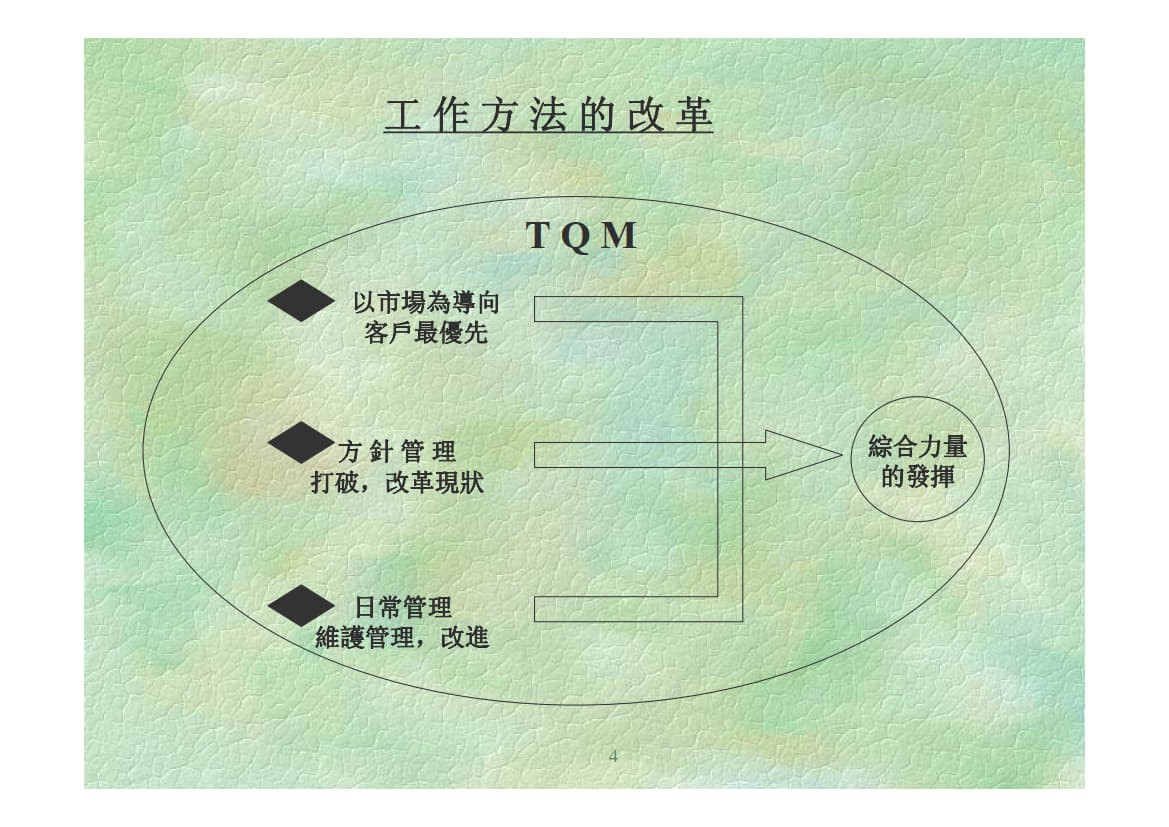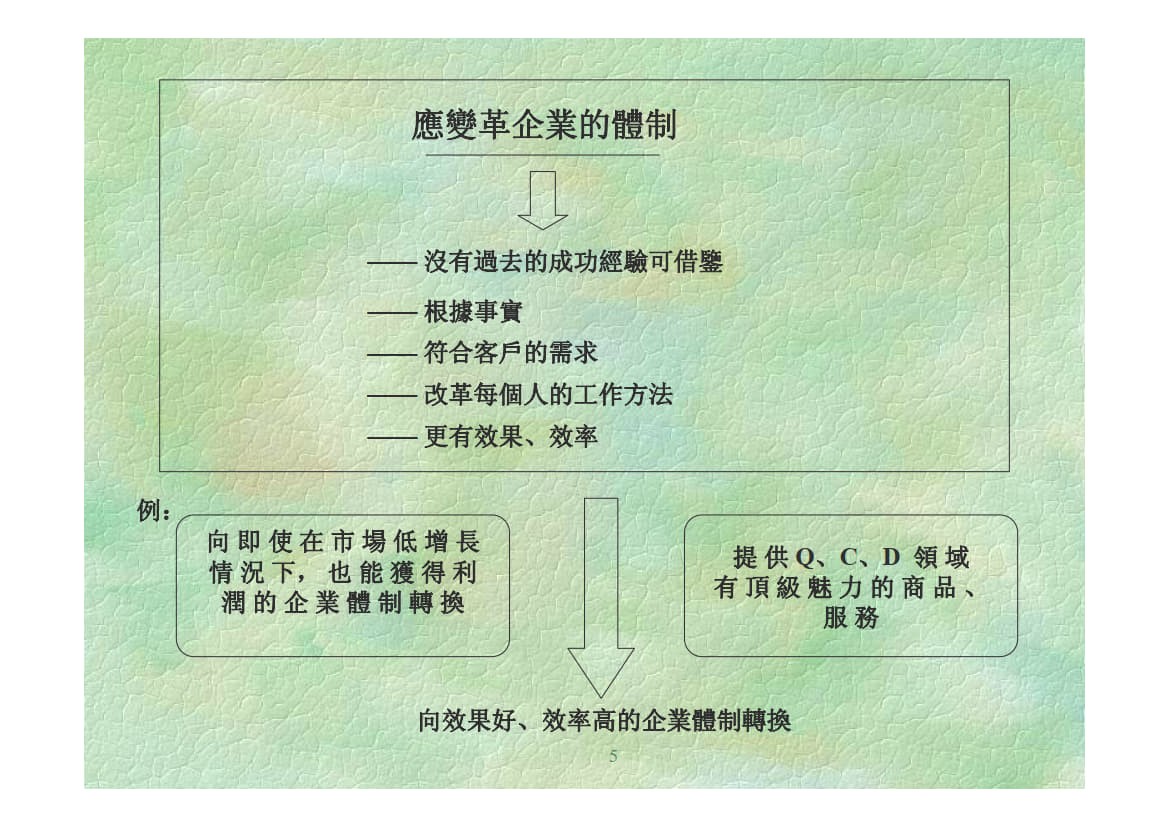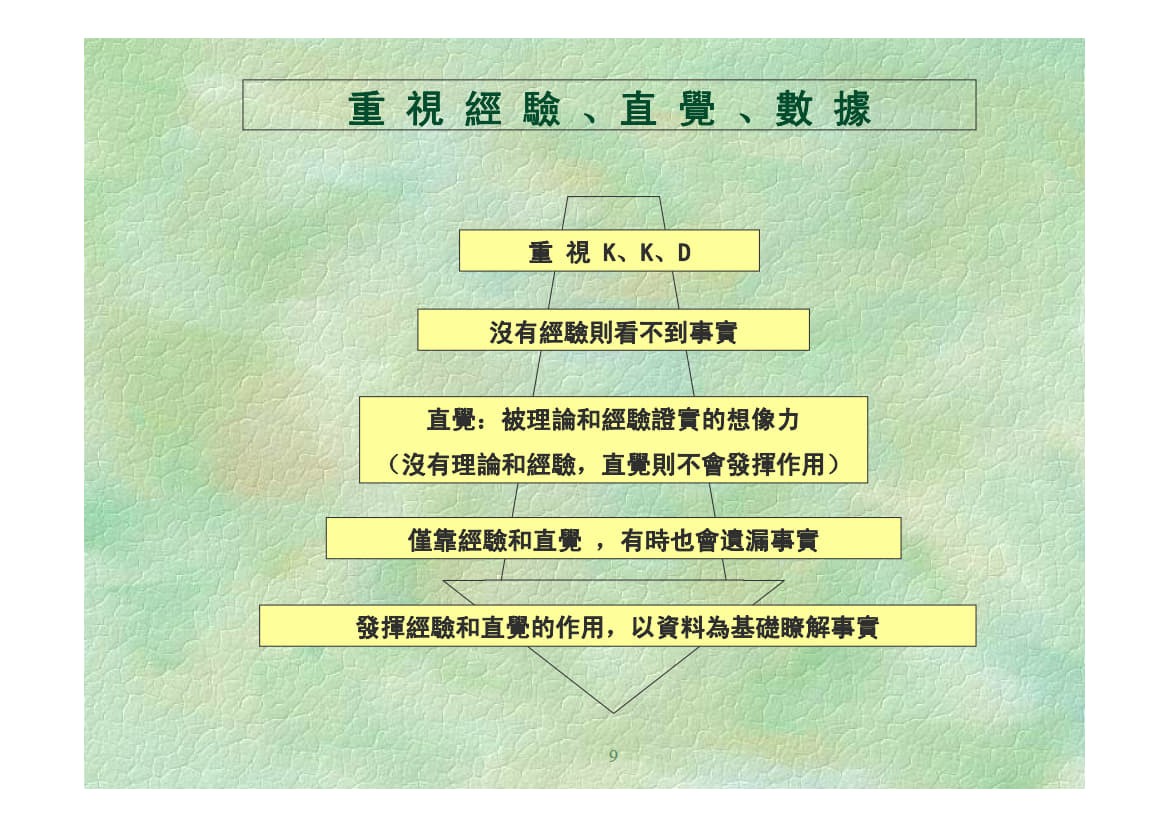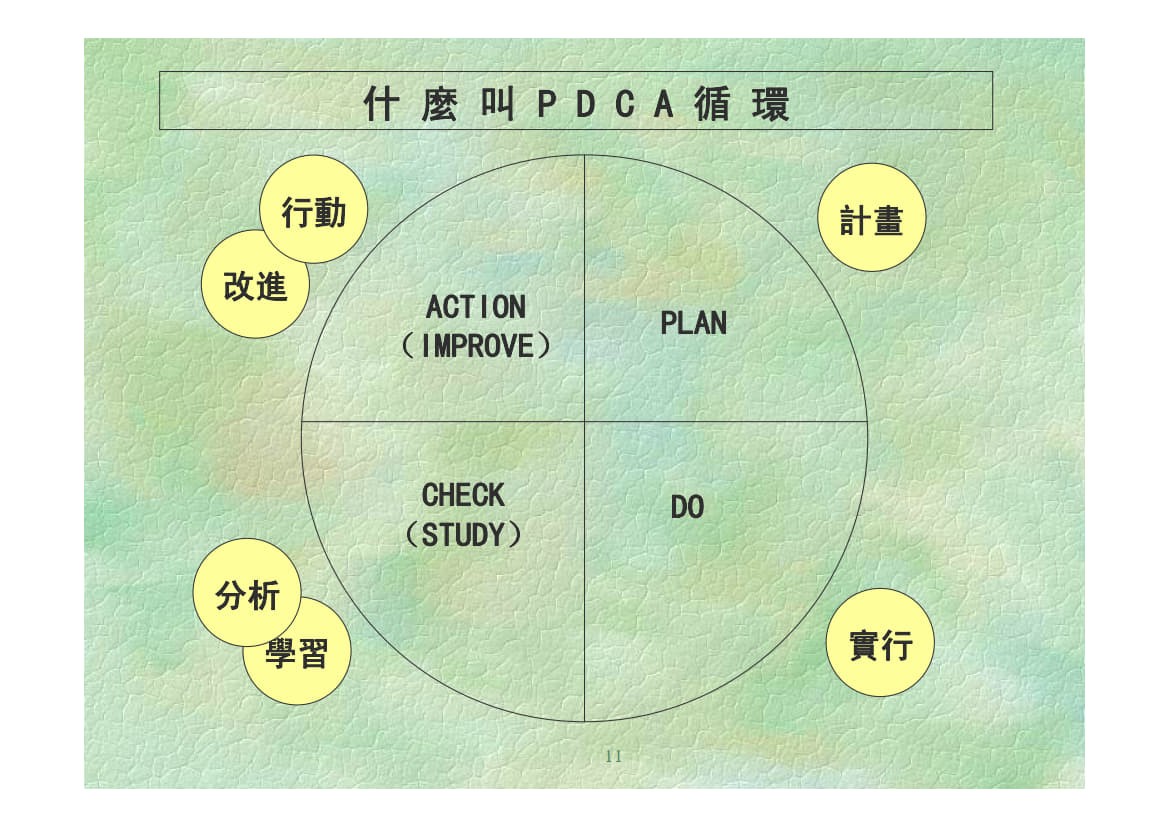《TQM全面质量管理》TQM全面质量管理学习培训资料下载
【内容介绍】
TQM stands for Total Quality Management. It is an approach to management that focuses on improving the quality of products, services, and processes within an organization. TQM emphasizes the importance of achieving customer satisfaction and continuous improvement through the involvement of all employees.
The key principles of TQM include:
- 1. Customer Focus: TQM aims to understand and meet customer needs and expectations to ensure their satisfaction.
- 2. Continuous Improvement: TQM promotes the idea of ongoing improvement in all aspects of the organization, from products and services to processes and systems.
- 3. Employee Involvement: TQM recognizes the value of involving employees at all levels in decision-making and problem-solving processes to promote a sense of ownership and commitment.
- 4. Process Approach: TQM emphasizes the importance of understanding and improving the interconnected processes that contribute to the organization's overall performance.
- 5. Data-Driven Decision Making: TQM relies on data and facts to guide decision-making processes and drive improvement efforts.
- 6. Leadership Involvement: TQM requires strong leadership commitment and involvement to support the implementation of quality initiatives and create a culture of continuous improvement.
By implementing TQM principles, organizations strive to reduce defects, enhance customer satisfaction, increase efficiency, and achieve sustainable business success.
全面质量管理(Total Quality Management,TQM)是一种管理方法,旨在通过全员参与,持续改进和客户导向的方式,提高产品、服务和流程的质量。全面质量管理强调实现客户满意度和持续改进,并将所有员工的参与视为关键。
全面质量管理的关键原则包括:
- 1. 客户导向:全面质量管理致力于理解和满足客户的需求和期望,确保客户的满意度。
- 2. 持续改进:全面质量管理提倡在组织的各个方面,从产品和服务到流程和系统中实现持续的改进。
- 3. 员工参与:全面质量管理认识到将所有员工参与决策和问题解决过程的价值,以促进责任感和承诺。
- 4. 流程方法:全面质量管理强调理解和改进对组织整体绩效作出贡献的相互关联流程的重要性。
- 5. 数据驱动的决策:全面质量管理依靠数据和事实来指导决策过程和推动改进工作。
- 6. 领导参与:全面质量管理需要强大的领导承诺和参与,以支持质量倡导的实施并创建持续改进的文化。
通过实施全面质量管理原则,组织努力减少缺陷,提高客户满意度,增加效率,并实现可持续的商业成功。
【资料样例】





【资料下载】
https://www.aliyundrive.com/s/aoBQfcARF5m
提取码:
|